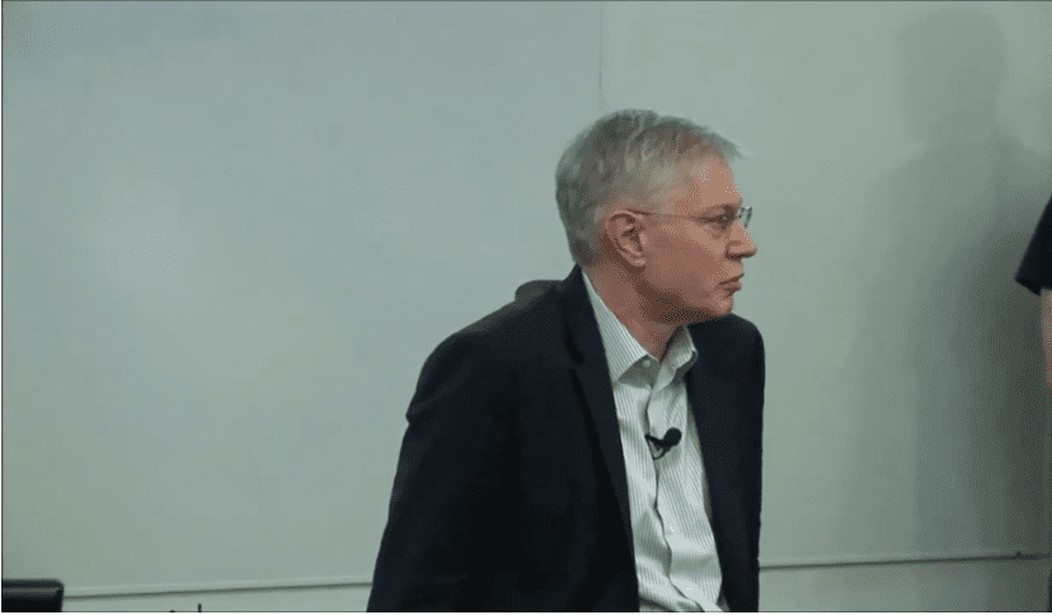WASHINGTON – Rep. Jamie Raskin (D-Md.) said voters who supported Donald Trump for president really favor a single-payer healthcare system and conservatives in Congress should get behind a “Medicare for all” plan to help small businesses.
Given the GOP majority in Congress, Raskin was asked how he would pitch “Medicare for all” to his Republican colleagues.
“Number one, I would say we need to liberate small business across America from the burden of having to figure out health insurance for their employees. The vast majority of small businesses are not in the healthcare business and that’s not what they bargained for, and so it dramatically increases their costs. If we did what Canada does, if we did what most industrialized countries do, the small businesses simply don’t have to worry about it,” Raskin told PJM during a conference call today organized by Public Citizen.
“It’s just a matter of historical accidents that we think of health insurance as connected to the workplace. It was because of wage and price controls that were imposed during World War II that employers started offering health insurance to employees as a way to get them to come work there, and that was kind of how the whole thing got started because they couldn’t increase people’s salaries,” he added. “And now it’s created huge problems for small business.”
Raskin also said that Trump might have been “intuitively” referring to a single-payer healthcare plan in America when he expressed support for a healthcare system that covered everyone during the 2016 campaign.
“Politically, Donald Trump, when he was campaigning, really campaigned to the left on healthcare in addition to a whole bunch of other issues including trade policy and the Iraq War and so on. But Donald Trump repeatedly said he was for a system that was going to be much cheaper, that covered everybody, and there are lots of quotes from him in the campaign of saying he wanted a system where everybody was going to be part of it,” the congressman said.
“I think he was at least intuitively talking about a universal single-payer plan, a Medicare-for-all plan. So, the politics of it are clearly resonating among the people who voted for Trump and for the small businesses that all of us are committed to – I think it’s a necessity now,” he added.
In January, Trump mentioned providing coverage for everybody in the context of replacing Obamacare.
“We’re going to have insurance for everybody,” Trump said. “There was a philosophy in some circles that if you can’t pay for it, you don’t get it. That’s not going to happen with us.”
Senate Democrats and Sen. Bernie Sanders (I-Vt.) plan on introducing the Medicare for All Act of 2017 on Wednesday. Some Republicans like Sen. John McCain (R-Ariz.) have said a single-payer healthcare system would turn into a two-tier system in America.
“I am against a single-payer system – that is socialism and I would never support it,” McCain recently said. “What you have basically, for example, in Britain is you have two tiers: you have a healthcare system that really wealthy people can afford to go out and get the healthcare they want, and there’s the other lower-income people who are dependent on ‘socialist’ medicine. My friends, waiting six months for a doctor’s appointment is not something that’s acceptable in America.”
Raskin was asked for his reaction to those who fear the creation of a two-tier healthcare system.
“We have tens of millions of people who are still not included at all, which means they have no ready access to a relationship with a doctor or medical treatment – so we’ve got to get everybody up to basic quality healthcare coverage,” he told PJM.
“Is it the case that people will have a right to go beyond that to contract for other services they want, either things that are not covered like cosmetic surgery or for additional coverage for things that aren’t covered? Yeah, they would be but that’s kind of the inevitable price of living in a free market society where people can contract for additional goods,” he added.
Raskin compared a two-tier healthcare system to people buying country club memberships instead of visiting public parks and parents sending their children to private schools even though their tax dollars fund public schools.
“The point is we have public goods that everybody has invested in that are accessible and available for everybody,” he said.
Rep. Ro Khanna (D-Calif.) agreed with Raskin.
“I think the argument is that there is a basic right to healthcare, to education and that there has to be access to what we think are basic services that any humane society would have, that doesn’t mean in the education context that everyone gets to go to Harvard, the government can’t pay for that. It just means that everyone should have access to a quality education and, similarly, everyone should have access to quality healthcare,” Khanna said.
“Obviously, people with their own incomes, if they want to supplement it, that’s up to them – but the standard should be quality healthcare for everyone.”









Join the conversation as a VIP Member